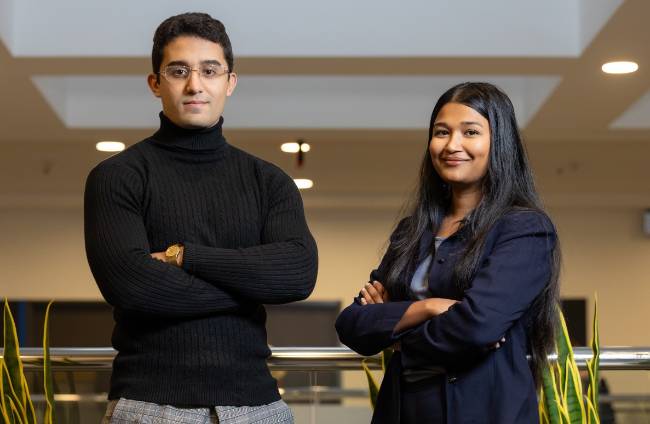- TECHSWU
- Posts
- TECHSWU
TECHSWU

In the rapidly evolving world of cybersecurity, artificial intelligence (AI) is becoming an indispensable ally against increasingly sophisticated threats. As cybercriminals adopt advanced techniques like spear-phishing and deep fakes, security professionals find themselves in a perpetual race to keep up.
Fortunately, AI offers a beacon of hope, enhancing detection and response capabilities, automating routine tasks, and empowering security teams to tackle complex threats effectively.
The Darktrace blog highlights the dual role of AI; not only does it amplify the sophistication of cyberattacks, but it also equips defenders with vital tools for proactive defense.
Generative AI, machine learning, and natural language processing are transforming how organizations analyze threats and respond swiftly.
As companies consider integrating AI into their cybersecurity stacks, understanding the unique strengths of different AI types is crucial for robust defense strategies.
Embracing a multi-layered AI approach promises to fortify defenses against the relentless tide of cyber threats.

In her article, Jane Ellen Stevens reflects on Oprah Winfrey's ABC special, "AI and the Future of Us," which teases out the dual-edged nature of artificial intelligence. While AI holds tremendous potential, it equally poses significant challenges that leave many feeling anxious yet intrigued.
Stevens ponders how AI intersects with the science of positive and adverse childhood experiences (PACEs), suggesting that PACEs science may have more to contribute to AI's evolution than the other way around. This thought-provoking piece invites readers to explore the profound implications of AI on our lives and communities.
Stevens encourages an open dialogue about the future, posing the tantalizing question of what role we might play in the unfolding story of AI. As AI continues to advance, the conversation about its impact has never been more essential.

Perplexity, the innovative AI-powered search engine, is contemplating a bold expansion into the hardware realm—though with a hint of uncertainty. This potential leap suggests a strategic shift, where the tech startup could blend its cutting-edge search capabilities with tangible devices, possibly enhancing user experience in novel ways.
While details remain scarce, the idea certainly ignites curiosity about how such a move could reshape the landscape of AI and search technologies. As the company weighs its options, tech enthusiasts and investors alike are eagerly watching to see if Perplexity will dive into this exciting new territory.

Qualcomm has decided to pull back from its ambitious bid to acquire Intel, a move prompted by unexpected complexities. Initially attracted to Intel’s struggles, including disappointing earnings and workforce reductions, Qualcomm soon discovered the hurdles of such a massive acquisition.
With Intel burdened by over $50 billion in debt and facing potential regulatory challenges, particularly in key markets like China, the deal looked increasingly daunting. Qualcomm's focus has shifted towards expanding its presence in areas like automotive chips and personal computing, avoiding the intricacies of Intel's semiconductor manufacturing.
CEO Cristiano Amon emphasized that a major acquisition isn’t necessary for the company to thrive right now. While a full takeover of Intel is off the table, Qualcomm may still explore partnerships or partial acquisitions in the future.
This decision marks a strategic pivot in Qualcomm’s growth trajectory, steering clear of uncharted waters for the time being.

The military's growing reliance on artificial intelligence (AI) and machine learning raises significant ethical dilemmas. Central to the debate is the challenge of determining when human judgment should give way to machine decision-making, especially in life-and-death scenarios.
Recent initiatives, such as the U.S.
military's $8 million ASIMOV project, aim to establish ethical benchmarks for autonomous military systems and assess their readiness for operational use. This project seeks to create guidelines aligned with principles of responsible AI—emphasizing responsibility, equity, reliability, and governance.
While ASIMOV won't provide all the answers, it marks an important step toward addressing the moral complexities of military AI, helping to demystify its application beyond the realm of science fiction. As the military grapples with these pressing questions, the balance between human command and machine autonomy is more critical than ever.

NASA's GRACE satellites have unveiled a shocking reality: since 2014, the Earth’s freshwater supply has been dwindling as global droughts become increasingly severe. The satellite data reveals that between 2015 and 2023, freshwater reserves fell by about 1,200 cubic kilometers, equivalent to two-and-a-half times the volume of Lake Erie.
This alarming trend has been linked to 13 major droughts worldwide, exacerbated by rising temperatures and shifting precipitation patterns. Experts warn that we may be facing an extended dry phase, with some regions already struggling to recover from water shortages.
While there is debate among scientists regarding the long-term implications of climate change, one thing is clear: sustainable water management is more critical than ever to combat this ongoing crisis. As we watch freshwater levels plummet, it's a wake-up call for action in preserving Earth’s vital resources.

Zoom has rebranded itself as Zoom Communications Inc. to spotlight its expanding artificial intelligence offerings.
The company reported a 3.6% rise in sales, totaling $1.
18 billion, while its AI assistant saw a staggering 59% increase in monthly users. Despite the growth, the sales forecast for the coming quarter was underwhelming, disappointing investors who hoped for bolder projections.
Zoom's enterprise revenue also climbed 5.8% to $699 million, driven by a strong base of nearly 4,000 high-value clients.
However, investor concerns remain, particularly regarding the loss of smaller customers, which are typically higher-margin. On a positive note, Zoom has committed an additional $1.
2 billion to its share buyback program, boosting total authorizations to $2 billion. With strategic leadership changes and new product developments, CEO Eric Yuan is focused on positioning Zoom for long-term growth amidst a rapidly evolving tech landscape.

Google has teamed up with Digital Promise to revolutionize education through the development of AI-powered learning tools. Announced at Google’s Learning in the AI Era event, this partnership aims to design research-backed frameworks that ensure high-quality educational technology tailored to the needs of educators and students.
Pati Ruiz from Digital Promise emphasized the importance of co-designing these tools with input from educators, researchers, and developers to foster meaningful learning experiences.
The event also highlighted innovative AI tools like "Learn About," which dives deeper into topics, and "NotebookLM," which provides AI-generated summaries and outlines.
With a focus on nurturing curiosity and accessibility, Google’s mission combines AI with learning science to create engaging educational resources. This collaboration promises to shape the future of learning, making technology a trusted ally in modern education.

A team of innovative students at Kennesaw State University is revolutionizing nutrition monitoring with their groundbreaking app, The Nutrilyzer. Led by graduate student Afnan Ahmed Crystal, alongside assistant professor Maria Valero and doctoral student El Arbi Belfarsi, this app uses artificial intelligence to analyze the nutritional content of food photos taken with smartphones.
By pairing it with the GlucoCheck device—a non-invasive glucose monitor—they aim to empower users to make healthier dietary choices. The team is navigating challenges like regional cuisine bias and is in the early testing phase, with plans to launch this spring.
As they gather user data, The Nutrilyzer will not only track glucose levels but could potentially enhance personalized health advice, making nutrition management more accessible than ever.

